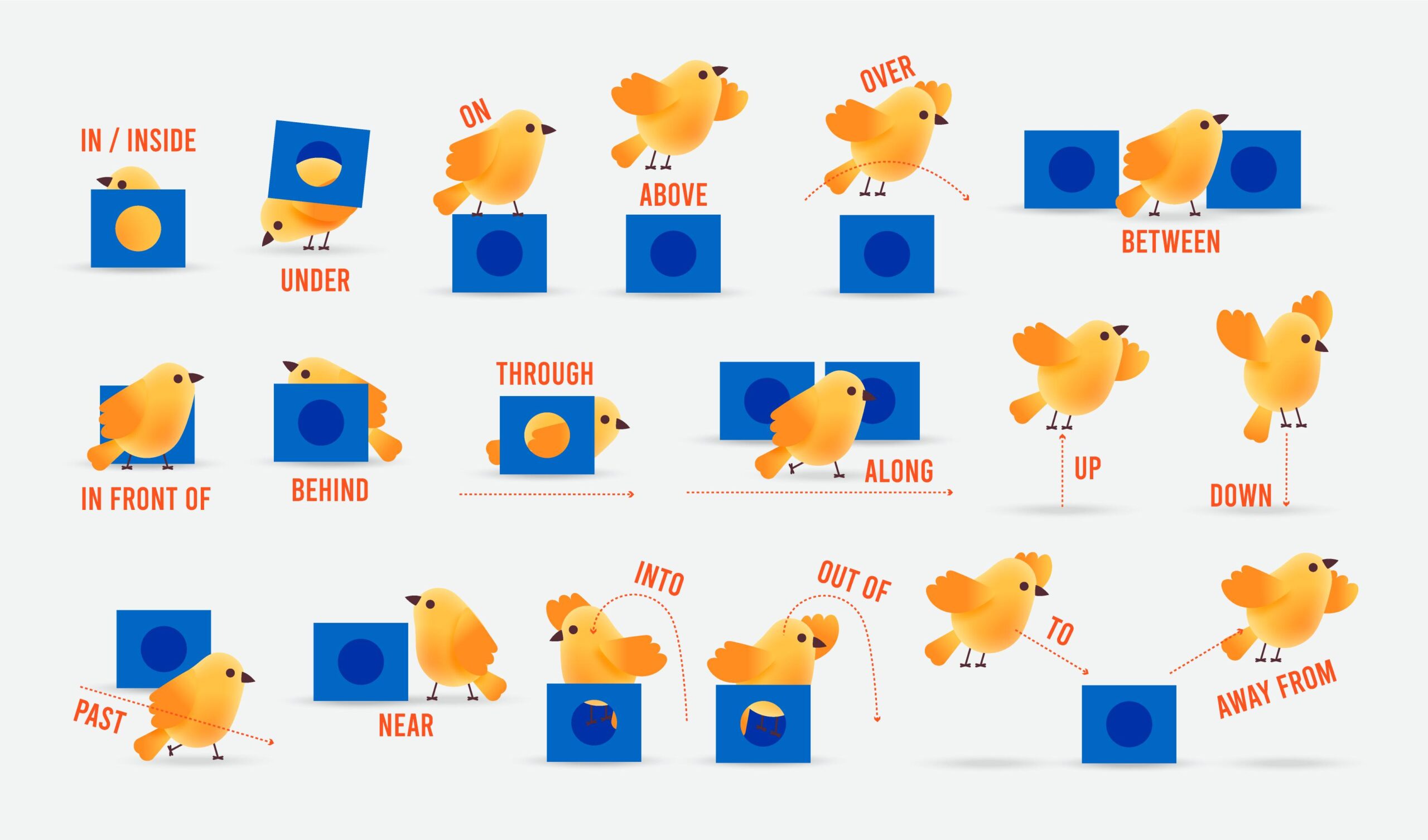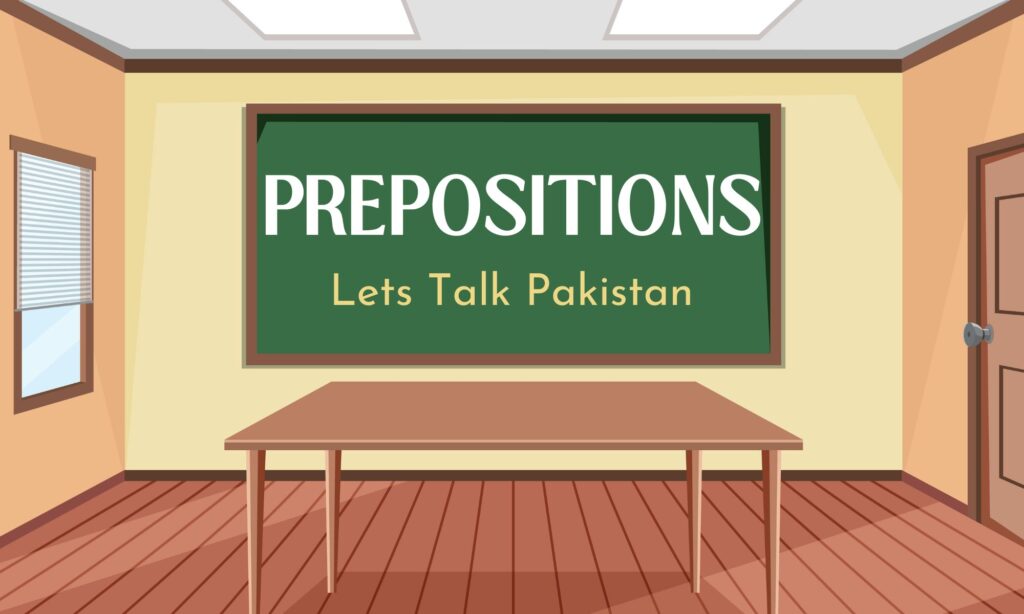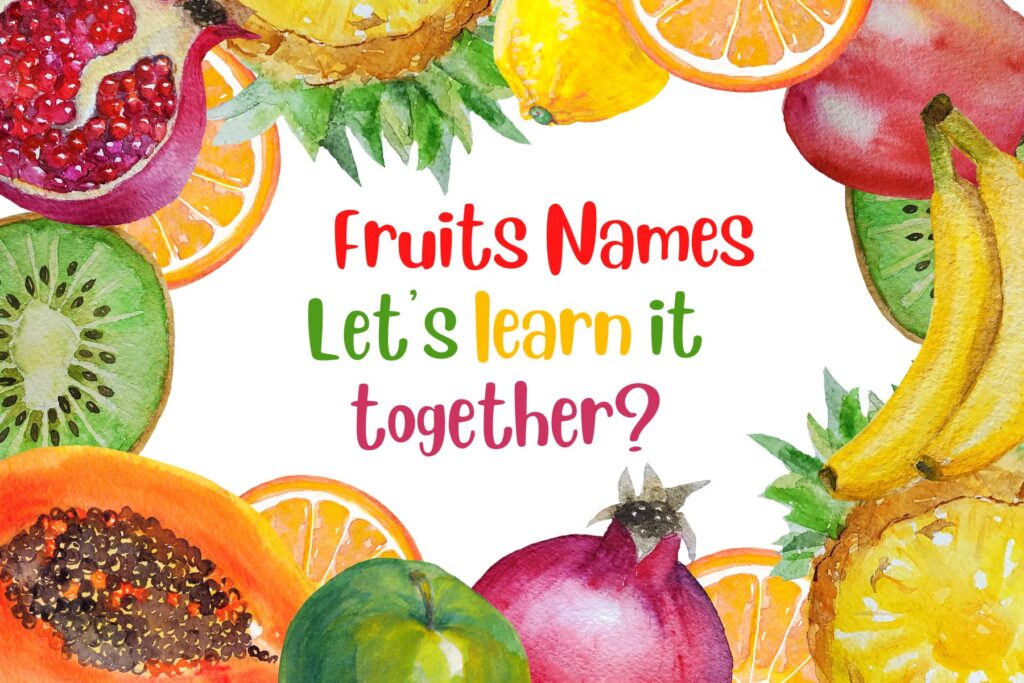What are Prepositions?
Prepositions are words that typically come before nouns, pronouns, or noun phrases and show the relationship between those words and other elements in a sentence. Prepositions usually indicate location, direction, time, manner, or possession. Here’s a more detailed explanation with examples:

Examples of prepositions
-
Location/ Place:
Prepositions indicate where something is located in relation to something else. Some common prepositions indicating location are: on, in, at, by, near, between, behind, above, under, over, besides, among, etc.
Example:
The book is on the table.
-
Time:
Prepositions indicate when something happens or the time frame of an action. Some common prepositions indicating time are: at, on, in, for, before, after, during, since, from, to, throughout, within, until, etc.
Example:
We’ll meet at 3 o’clock.
-
Movement/ direction:
Prepositions indicate movement or direction of something. Some common prepositions indicating movement are: to, from, into, through, along, across, onto, off, over, up, towards etc.
Example:
She walked across the bridge.
-
Manner:
Prepositions describe how something is done. Some common prepositions indicating manner: with, by, like, in, etc.
Example:
He painted the wall with a brush.
-
Possession:
Prepositions show ownership or possession. Some common prepositions indicating possession: of, for, belonging to, etc.
Example:
This book belongs to me.
-
Agent or Instrument:
Prepositions specify the agent or instrument performing an action. Some common prepositions indicating agent or instrument: by, with, from, etc.
Example:
The letter was written by John.
-
Source or Origin:
Prepositions specify the source or origin of something. Some common prepositions indicating source or origin: from, out of, off, etc.
Example:
The package came from China.
-
Cause or Reason:
Prepositions indicate the cause or reason for something. Some common prepositions indicating cause or reason: of, for, because of, due to, etc.
Example:
He died of a heart attack.
-
Comparison:
Prepositions show comparison between two things. Some common prepositions indicating comparison: than, as, like, etc.
Example:
She is taller than her sister.
What are the types of Prepositions?
There are five main types of prepositions. Here’s a short overview of these simple basic types of prepositions:
| Simple Preposition | These are single-word prepositions. Examples include: in, on, at, by, with, from, to, for, of, about, under, over, between, among, etc. | She is sitting on the chair. |
| Double Preposition | These are formed by joining two simple prepositions. Examples include: into, up to, within, out of etc. | The boy jumped out of a moving car. |
| Compound Preposition | These are prepositions formed by combining one preposition and a non-prepositional word. Examples include: because of, in spite of, according to, instead of, by means of, in front of, on top of, etc. | He won the game in spite of his injuries. |
| Participle Preposition | These are formed by using present participles (-ing) or past participles (-ed) of verbs as prepositions. Examples include: during, concerning, considering, pending, regarding, excluding, following, etc. | During the meeting, she took notes. |
| Phrasal Preposition | These are prepositional phrases that function as a single preposition. Examples include: by means of, in place of, in front of, on behalf of, as opposed to, etc. | We went to the park by means of the shortcut. |

Where can we use different Prepositions?
| Prepositions | Uses | Examples |
| In | Months, years, centuries or other long period of time, In relationship with 3D space, countries, cities | E.g. in 1998, in 1990’s, in summer, in January, in the bank, in a room, in bed, in the kitchen, in Canada, in the car, in the taxi etc. |
| On | Dates, specific days of the week, relationship to a surface, streets | E.g. on Sunday, on my birthday, on May 7, on Monday morning, on the ceiling, on the road, on the second floor, on bicycle, on Oxford road, on the bus, on the train, on a plane etc. |
| To | Indicates a destination | e.g. the boys go to school in groups. |
| At | Specific time or holiday period, single specific location | E.g. at night, at noon, at bedtime, at Christmas, at the weekend, at 9:00, at the office, at the top, at work, at the airport etc. |
| Towards | In direction of something or someone | e.g. She pushed her towards mirror. |
| Through | Movement from one side to another in something(long grass or forest) | e.g. He walked slowly through the woods. |
| Over | Movement at a higher level than something else | e.g. He jumped over the wall. |
| Across | Movement from one side of something to other side(road or river) | e.g. He swam across the river. |
| Along | Movement of something in a line that follows a side of something long | e.g. The swans are eating along the river. |
| From | The place from where something starts | e.g. What time does the flight from Spain arrive? |
| Around | Movement in circles | e.g. They told stories around the campfire. |
| Onto | Movement to a position on a surface | e.g. The dog climbed onto the bed. |
| Into | Movement that enters a space from outside with a verb | e.g. She walked into the room. |
| By | On or before a time, up to a certain time | e.g. I have to finish my work by 8 pm. |
| Ago | A certain time in the past | e.g. I met her 4 years ago. |
| Before | Earlier than a certain point of time | e.g. They moved from here before 2014. |
| Since | From a certain point of time | e.g. Since 2016, since yesterday morning etc. |
| For | Over a certain period of time | e.g. For 3 years |
| Till/ until | How long something is going to last | e.g. He is on vacation until Sunday. |
| From….to/till/until | Marking the beginning and end of a period of time | e.g. From Monday till Friday |
| Between | Something in the middle of two things have separate identity | e.g. He was dancing in between Tom and Harry. |
| Among | Something is part of something that is not clearly separated or belongs to a group or crowd | e.g. She was walking among the stars. |
| Over | On something or covering it | e.g. Put the jacket over your shirt. |
| Above | Higher than something else, but not directly covering it | e.g. People in the apartment above us are noisy. |
| Next to/ beside | T the left or right of something or someone | e.g. We sit beside the pool.
He is standing by/beside/next to the pool. |
| Under | Lower than something else on the ground | e.g. He is hiding under the table. |
| Below | Lower than something else above the ground | e.g. He dived below the surface of water. |
If you like this article and want to read more articles please use below mentioned link.



